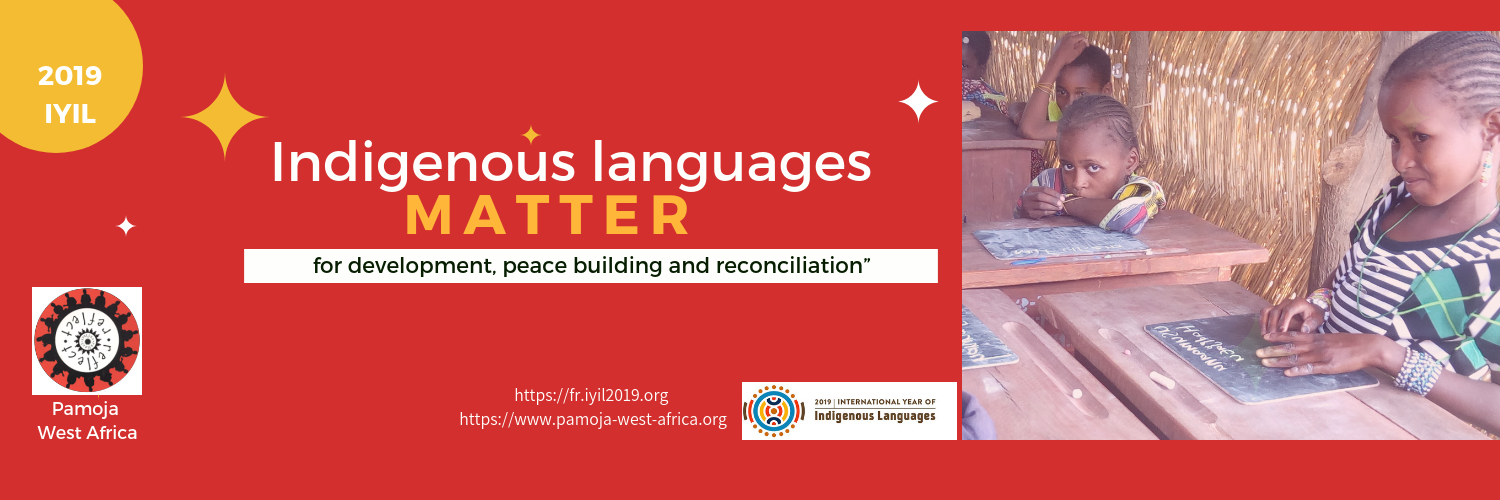21 FEBRUARY, INTERNATIONAL MOTHER LANGUAGE DAY: TAKE THE APPOINTMENT!
21 FEBRUARY, INTERNATIONAL MOTHER LANGUAGE DAY: TAKE THE APPOINTMENT!

Proclaimed by UNESCO’s General Conference in November 1999, International Mother Language Day has been celebrated every year since February 2000 to preserve linguistic diversity and promote multilingual mother-tongue education. This year 2019 marks the twentieth edition and will be celebrated as part of the International Year of Indigenous Languages 2019 (IYIL 2019) under the theme: “Indigenous languages matter for development, peace building and reconciliation“. Pamoja West Africa as a network fighting for the right to literacy and non-formal education of young people and adults is associated with this celebration. Several national Pamoja have also planned specific activities.
Why an International Day for Indigenous Languages?
Language is one of the main elements of socialization. It allows you to express yourself and communicate. It confers a cultural identity, ensures education, facilitates social integration and promotes development. Unfortunately, hundreds of languages and the cultures they carry are now threatened with extinction. When languages are extinguished, cultural diversity, which is the richness of humanity, diminishes: humanity loses whole areas of its history and, hence, of its soul. According to UNESCO, more than 43% of the approximately 6,000 languages spoken in the world are now threatened with extinction. Every two weeks, a language disappears, carrying with it a whole cultural and intellectual heritage. Only a few hundred languages are truly valued in the education system and in the public domain, and fewer than a hundred are used in the digital world.
A challenge of education and sustainable development
Languages play a key role in the development of, among other things, providing quality education to all and building inclusive knowledge societies. The 2030 Agenda aims in its fourth objective to “Ensure inclusive and equitable quality education and promote lifelong learning opportunities for all” (SDG 4-Education 2030). It is thanks to languages that we can transmit knowledge and cultures in a sustainable way. To promote sustainable development, learners must have access to education in their mother tongue and in other languages. It is through fluency in one’s first language or mother tongue that basic reading, writing and numeracy skills can be acquired. Local languages, in particular the languages of minorities and indigenous peoples, transmit culture, values and traditional knowledge, thus playing an important role in promoting sustainable futures. In Africa, where illiteracy is still endemic in some countries, the promotion of languages through the provision of basic education to youth and adults excluded from the formal system is more than decisive for the empowerment and participation of all in the development.
Linguistic diversity for a peaceful coexistence
The promotion of linguistic diversity is an important factor of intercultural and interreligious dialogue for a world of peace. It helps to respect cultural differences and encourages social cohesion. Our increasingly diverse societies are defined by the cohabitation of people, groups and peoples of different origins, languages, cultures and religions who are called to learn to live together in peace and mutual respect. The mediating, practical and symbolic role of languages in achieving intercultural dialogue and the meeting of cultures is therefore central.
Useful links
http://www.un.org/en/events/motherlanguageday/background.shtml

